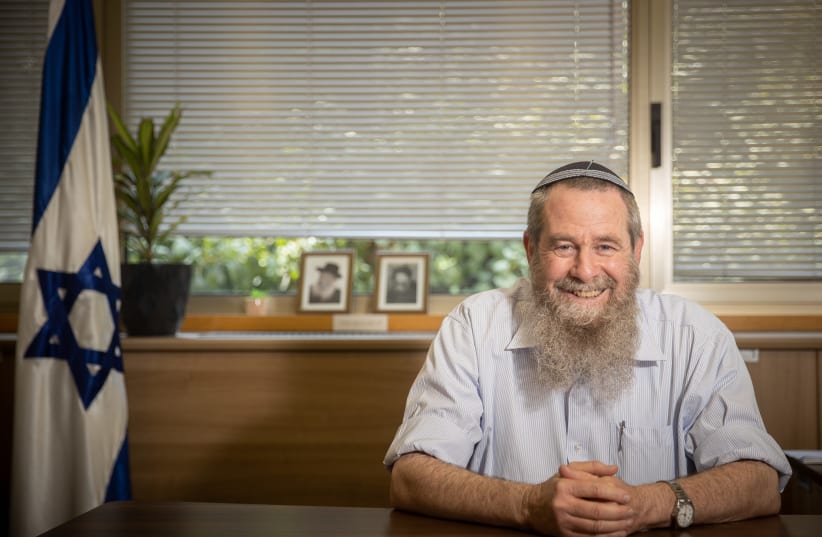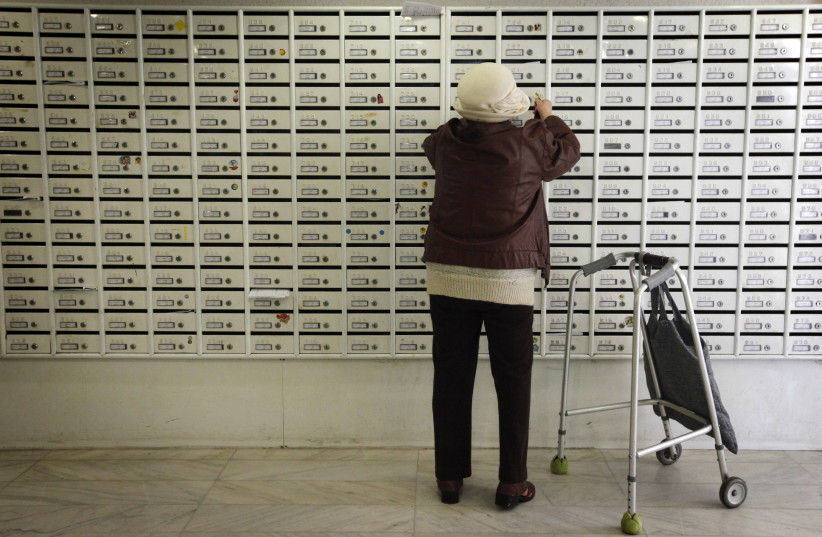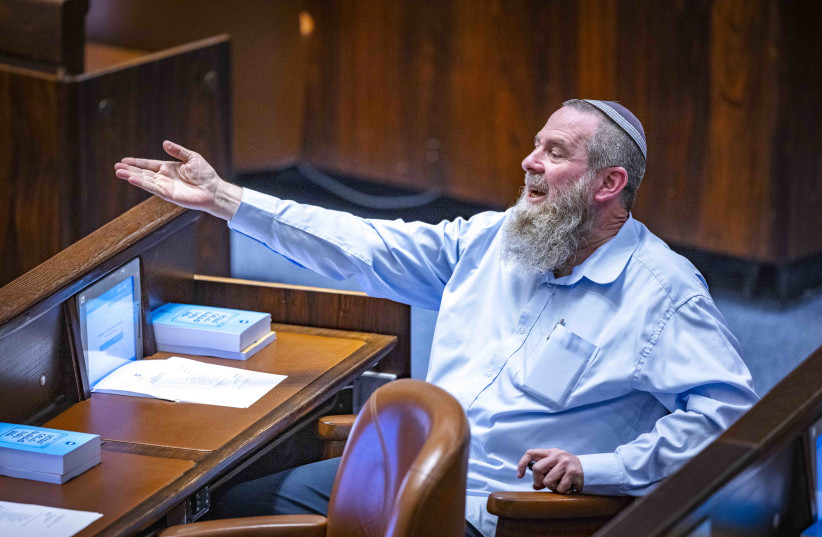Employees of Nativ, a body within the Prime Minister’s Office charged with liaising with Jewish communities in the former Soviet Union (FSU), are “very nervous,” according to government sources.
The reason for their anxiety is that Likud signed a coalition agreement with the extremist, right-wing Noam Party, whose MK Avi Maoz will serve as a deputy minister in the Prime Minister’s Office in charge of the new “National Jewish Identity Department.” He will also be in charge of Nativ, according to Maoz’s representative.
Nativ has the authority to determine the eligibility of people wishing to immigrate to Israel from FSU countries pursuant to the Law of Return.
Nativ (formerly called Lishkat Hakesher, the Connection Office) was established in 1952 and maintained contact with Jews living in the Eastern Bloc during the Cold War, encouraging aliyah.
The body was established at the initiative of prime minister David Ben-Gurion to preserve ties between Israel and Diaspora Jews.
Nativ was once considered an espionage and intelligence organization, parallel to the Mossad, with special expertise on FSU Jews until the early 1990s.
Nativ is the only body qualified to issue aliyah visas to FSU Jews. In other countries, this is the responsibility of the Jewish Agency.
In the early 1990s, Nativ established what were termed Israeli Cultural Centers, operating under the patronage of Israeli diplomatic missions. According to Nativ, it currently operates nine centers in Moscow, Saint Petersburg, Novosibirsk, Kyiv, Kharkiv, Odessa, Dnepr, Kishinev and Minsk.
“The Israeli Cultural Centers serve as a bridge to Israeli culture and language and are open to the general public,” the Nativ website says.
For years, Finance Minister Avigdor Liberman (Yisrael Beytenu) ensured that Nativ would be under his authority.
“Maoz will make huge changes in Nativ since, until now, no one really cared what they were doing and how they were operating,” a government employee familiar with the matter said. “Even though they are no longer immensely connected to the Israeli espionage and intelligence bodies, they were always under the radar.”
Since Yisrael Beytenu thrives on FSU olim, the source said, Liberman always fought for Nativ to stay open – even after many government investigations and committees recommended dismantling it and transferring its authorities to other government ministries or organizations.
Why did Maoz request to take charge of Nativ?
Maoz, 66, is chairman of the Noam faction, which ran together with the Religious Zionist Party and Otzma Yehudit. He is the only MK from his party.
Maoz served as director-general of the Interior and Housing ministries under former ministers Natan Sharansky and Effi Eitam, respectively. He was also director-general of Yisrael BaAliyah, which was initially a centrist party but became more of a right-wing party.
Maoz also was one of the leaders of the “Let My People Go” movement that operated on behalf of FSU Jews, working hand-in-hand with Sharansky’s wife, Avital, to secure his release.
Maoz became head of the Noam Party after its establishment in 2019. The party’s spiritual leader is Rabbi Zvi Thau, dean of the Har Hamor Yeshiva, which is considered haredi-nationalistic. According to an interview he gave to Makor Rishon in 2021, Maoz barely lived at home when he worked for the release of FSU Jews for a year and a half.
“At the beginning, I told my wife: ‘Don’t worry, I won’t travel abroad because I don’t know a word of English,’” he told Makor Rishon at the time. “I don’t know any languages, but it had to be done, and it was clear to me, from a halachic perspective, that it was allowed,” he said, since religious Zionists are reluctant to leave Israel for halachic reasons.
Maoz then met Benjamin Netanyahu, who was serving as ambassador to the UN. Netanyahu and members of “Let My People Go” worked to promote a joint resolution by Congress, the Senate and backed by US president Ronald Reagan that the release of the Jewish prisoners would be a precondition for progress in discussions with the Soviet Union.
Many who know Maoz and his career said it isn’t accidental that he asked to run Nativ. They all think he not only knows the organization and its target audience, but that he is a “doer” and an expert in government operations.
“He can’t change legislation, but he can make things more difficult for Nativ employees,” a former senior government official said.
Only 28% of FSU olim in 2020 were considered Jewish under the Law of Return, according to a new report by the Knesset Research and Information Center. It was published exclusively by Ynet.
The report showed that three out of four immigrants who made aliyah during 2020 were not Jewish. According to the data, 72% of olim came to Israel as descendants of Jews and are not Jews themselves, according to the definition of the law.
According to the Law of Return, any Jew can make aliyah and become an Israeli citizen, but those who have at least one Jewish grandparent can also make aliyah based on their connection to a Jew. The Grandparent Clause was added to the law in 1970.
Many of the parties in the next government wish to change the Law of Return to make it more conservative. Maoz was very critical of these high numbers.
A source who knew Maoz when he worked for Sharansky said the two split due to Sharansky’s more liberal views regarding the Law of Return and conversion.
“There is no similarity between the former Israel BaAliyah Party and the Noam Party,” a government source said. “I am very surprised that Netanyahu actually let him lead this type of sensitive issue.”
Nativ mainly deals with aliyah but also has emissaries who operate cultural and educational activities in the FSU, and Maoz will be able to influence their content.
Maoz will also be able to learn about Nativ and the current situation of aliyah to cooperate with the other religious parties and try to legislate a change in the Law of Return.
“He’s no sucker,” a source said. “Maoz will dive into the data, and for the first time in years, Nativ employees will be challenged.”
Another possible strategy for Maoz can be to introduce a requirement to begin a conversion process in the FSU, as is requested for olim from Ethiopia.
The Jerusalem Post has reached out to Maoz for comment.
Eliav Breuer contributed to this report.


